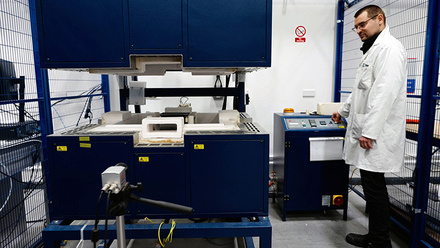England’s resource efficiency agenda requires accelerating with urgency, Aldersgate report
In a new report, the Aldersgate Group calls on the UK government to accelerate progress on resource efficiency to secure benefits in terms of emission savings, reduced environmental impacts, job creation and economic resilience.

The Aldersgate Group’s work, launched this month, says that England’s policy on resources and waste has to date been too piecemeal and subject to repeated delays. In addition, Aldersgate says the recent Waste Prevention Programme is simply restating many pre-existing policy commitments.
The report Closing the Loop: Time to crack on with resource efficiency, calls for much greater urgency, stronger cross-government collaboration, and a more systemic approach to improve resource efficiency across the economy. The report sets out priority areas where the development and implementation of existing policy proposals needs to be accelerated, highlights policy gaps where new proposals are needed, and makes specific policy recommendations to improve resource efficiency across the construction and automotive industries, two resource intensive sectors.
Key recommendations for the future of England’s resources and waste policy include:
- Resource efficiency should become a cross-government priority beyond efforts led by Defra, with all departments contributing to policy development and implementation. This should include close collaboration with devolved administrations, with nations such as Wales having made significant progress on this agenda.
- Accelerating the implementation of proposals which will have the most rapid impact in improving product design. This includes development of mandatory eco-design standards and lifecycle assessments for a growing range of products and rolling out Extended Producer Responsibility (EPR) Schemes beyond packaging, with a focus on ambitious fee modulation mechanisms, clear definitions and a close monitoring of performance. The design and role of Deposit Return Schemes should be clarified.
- The Environment Bill – which will introduce long-term, legally binding targets on waste reduction and resource productivity - should be amended to provide for more robust interim targets that will provide businesses with greater clarity on the near-term policy actions to meet the long-term targets under the Bill.
- New proposals should be put forward to tackle ongoing market barriers that are slowing the take-up of more resource efficient business models.
- A comprehensive strategy on low carbon skills to support an economy-wide drive towards greater resource efficiency. This should include embedding climate change and environmental sustainability at all stages of the national curriculum, encouraging a much higher uptake of STEM subjects, and broadening the scope of the Apprenticeship Levy Standards. To support workers in need of reskilling, the Government should continue to provide financial support for training, upskilling and retraining through the National Skills Fund and encourage Further Education Institutions to offer a broader range of flexible, short-term courses.
- The Government should facilitate greater trade in circular products and materials, by featuring circular economy principles in the trade and sustainable development chapters of trade agreements.
The report also calls for a range of measures to drive greater efficiency in the resource intensive sectors of construction and automotive. This includes the introduction of design regulations for buildings, streamlined lifecycle assessment methodologies for buildings and vehicles, and the introduction of mandatory product standards for construction materials and vehicle components.







